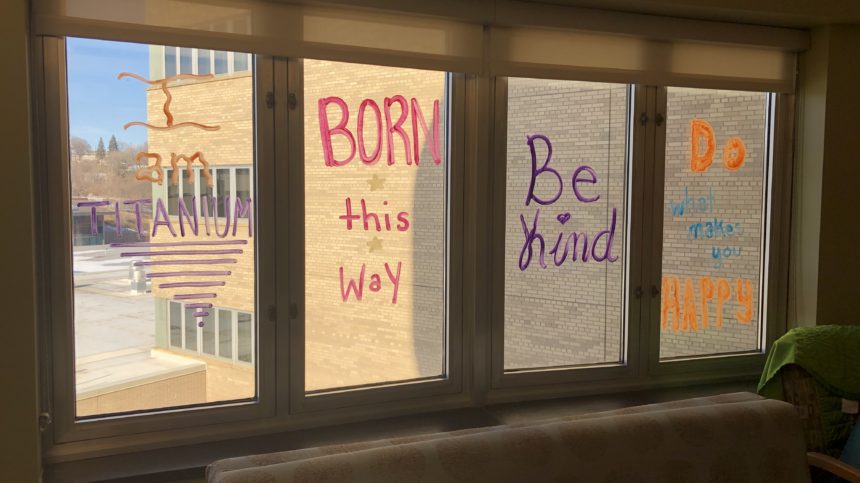
It was 1 a.m. and I’ve found myself in a familiar place – a hospital room. I’m tired, but at the same time I’m unable to sleep due to pain and the constant rustle and bustle of the floor. I’m exhausted–physically and emotionally–and looking for some sort of reprieve. I was (and still am) triggered by my PTSD, trying desperately to stay in the moment, but not letting it show. Just then, a moment of kindness, right when I needed it the most: “You know,” a nurse says to me at my bedside while helping me get my medications, “I think what you did was very brave.”
In all honesty, I’d seldom use the word “brave” to describe myself. It’s a label that a lot of people have attached to me over the years, and sometimes, it wasn’t really for good reason. But this time, I think I’m inclined to agree.
Six months ago, I was scared of reliving my worst nightmare — I had overdosed on a drug pump as a child and it was those events, along with the ones that followed, that shaped much of how I saw myself. I experienced extensive symptoms of mental illness that everyone –including myself– overlooked for years. When I was left with little choice and had to do the surgery again, my worst nightmare actually happened – a week after leaving the hospital, I contracted a life-threatening bacterial infection as a complication from surgery that ravaged my central nervous system. I was critically ill, and in the midst of that, I experienced psychotic symptoms due to delirium caused by the illness. For days–which felt like an eternity–I didn’t know where I was, how old I was, or my name. I would scream and be combative throughout tests and treatments. Even when I came back to myself, I was still angry, scared, and scarred. Despite this, I fell back into the familiar by telling a nurse that I was doing well; I lied. Truthfully, I was broken and terrified of what the future held.
Ultimately, I was faced with a choice: do the same surgery for the third time that has caused me both great physical pain and psychological trauma to try and get my life back and plan for my future, or experience worsening symptoms of a neurological condition that caused me agony and sometimes robbed me of my ability to purposely move or speak. I chose the former, but I was absolutely mortified.
Despite the fear and feelings of loneliness, if there’s one thing I knew I had the power to do even when I was losing control, it was this: I was committed to being honest about my mental health and treating every single person I interacted with within the hospital with kindness. I made a very conscious effort to profusely thank everyone, even after uncomfortable or painful moments during necessary procedures where doctors mutter a quiet “sorry” under their breath, for their efforts in keeping me healthy.
And even if I can’t avoid my triggers for the sake of my health–the incisions on my back and abdomen are checked multiple times a day and each time, I stare at the ceiling and hold my breath, occasionally finding myself flashing back to the days of when I was fighting for my life–I was slowly finding myself (am still am finding myself) opening up more and more about those triggers, and dare I say it, becoming braver and more willing to be vulnerable in the process. And just like in the hospital room that I was in back in September that had positive affirmations painted on the windows, we’ve also done the same with this room–this time, with the words, “I am titanium,” “Born this way,” “Be kind,” and “Do what makes you happy” written in pink, orange, and purple paint.
Six months ago, I might not have called myself brave. But if these last six months have taught me anything, it’s the importance of kindness and sharing your truth, and I hope you will join me. I can honestly say putting kindness and bravery in practice in real-time has made a real, tangible difference in my recovery. Clichè as it may sound, kindness heals. I’m constantly growing, healing, and changing; and just like my new windows, I’ve also found a new me: one who is kinder, braver, and ready to take on the world.


















